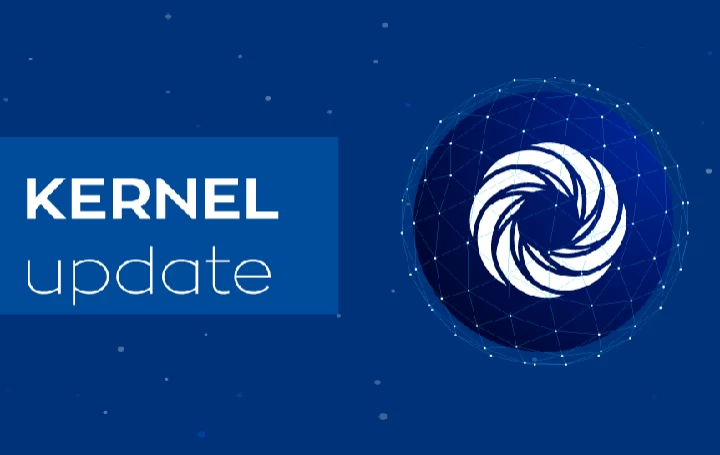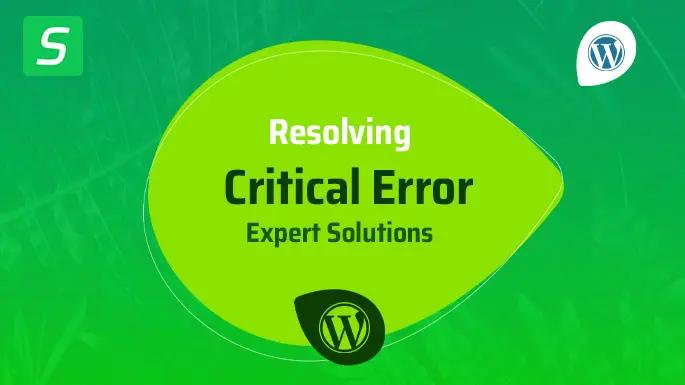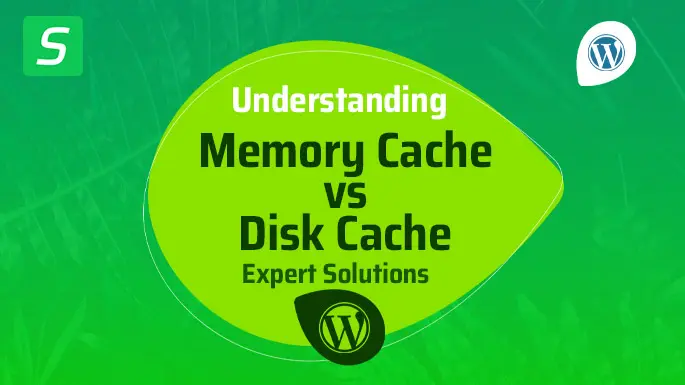WordPress Security: In today’s digital age, having a robust online presence is crucial for businesses and individuals alike. And when it comes to building websites, WordPress has emerged as the go-to platform for its user-friendly interface and plethora of customizable features. However, with the increasing number of cyber threats, it is essential to prioritize the security of your WordPress website.
In this comprehensive guide, we will explore the various measures you can take to protect your website from potential attacks and vulnerabilities. From implementing strong passwords and regular updates to utilizing security plugins and best practices, we will provide you with actionable steps to fortify your WordPress site’s defenses. So, whether you’re a seasoned WordPress user or just starting out, join us as we delve into the world of WordPress security and equip you with the knowledge to safeguard your website from potential threats.
WordPress Security: How to Protect Your Website
WordPress websites are vulnerable to security threats, but there are steps you can take to protect your site. Here’s a step-by-step tutorial:
- Keep WordPress, themes, and plugins updated regularly.
- Use strong passwords and unique usernames.
- Install a reputable security plugin like Wordfence or Sucuri.
- Enable two-factor authentication for an extra layer of security.
- Regularly backup your website and database.

WordPress Security: How to Protect Your Website
WordPress is one of the most popular content management systems used by millions of websites worldwide. However, with its popularity comes the risk of security threats. It is crucial to take proactive measures to protect your WordPress website from malicious attacks. In this article, we will provide you with step-by-step guidance on how to enhance the security of your WordPress website, ensuring its safety and safeguarding your valuable data.
1. Keep WordPress Updated
Regularly updating your WordPress installation, themes, and plugins is essential for maintaining a secure website. Developers frequently release updates that address security vulnerabilities and fix bugs. To ensure your website’s security, regularly check for updates in your WordPress dashboard and apply them promptly. Additionally, consider enabling automatic updates to stay up to date effortlessly.
Moreover, it is crucial to keep your themes and plugins updated as well. Outdated themes and plugins can be exploited by hackers to gain unauthorized access to your website. Remove any unused themes and plugins, and only use reputable ones from trusted sources.
2. Use Strong and Unique Passwords
Using a strong and unique password is a fundamental measure to protect your WordPress website. Avoid using common passwords or easily guessable combinations. Instead, create a complex password comprising a combination of uppercase and lowercase letters, numbers, and special characters.
Furthermore, it is crucial to use different passwords for your WordPress admin account, hosting account, and email associated with your website. In case one account gets compromised, having unique passwords will prevent unauthorized access to your other accounts.
3. Implement Two-Factor Authentication
Two-factor authentication (2FA) adds an extra layer of security to your WordPress login process. With 2FA, you will need not only your password but also a unique verification code generated by a trusted device or app. This makes it significantly harder for hackers to gain unauthorized access to your website.
There are various plugins available that offer 2FA functionality for WordPress. Install a reliable 2FA plugin and follow the setup instructions to enable this powerful security feature for your website.
4. Limit Login Attempts
Brute force attacks, where hackers try multiple login attempts to guess your password, are a common method used to gain unauthorized access to WordPress websites. By limiting the number of login attempts, you can effectively prevent these attacks.
Consider using a plugin that allows you to set a limit on login attempts and blocks IP addresses after a certain number of failed attempts. This will deter hackers and protect your website from such malicious activities.
5. Use a Secure Hosting Provider
Choosing a reputable and secure hosting provider is crucial for your WordPress website’s security. Opt for a hosting provider that offers robust security measures, regular backups, and excellent customer support.
Additionally, consider using a hosting provider that provides SSL certificates for secure data transmission and HTTPS protocol support. This ensures that your website’s data is encrypted and protected from unauthorized access.
6. Regularly Backup Your Website
No matter how secure your website is, there is always a possibility of unforeseen events or attacks. Regularly backing up your WordPress website ensures that you have a recent copy of your data that can be restored in case of any unfortunate incidents.
Utilize a reliable backup plugin or your hosting provider’s backup service to schedule automatic backups. Store the backups in a secure location, preferably outside of your hosting server, to ensure their availability even in the event of a server compromise.
7. Install Security Plugins
There are numerous security plugins available for WordPress that can enhance the security of your website. These plugins offer features like malware scanning, firewall protection, and login security measures.
Research and choose a reputable security plugin that suits your specific needs. Install and configure the plugin according to the documentation provided, and regularly update it to benefit from the latest security enhancements.
8. Secure Your wp-config.php File
The wp-config.php file contains sensitive information, including your WordPress database credentials. Protecting this file is crucial for your website’s security.
Move the wp-config.php file to a location outside of the web-accessible directory. This prevents direct access to the file and adds an extra layer of protection against unauthorized access.
9. Monitor and Audit Your Website
Regularly monitoring and auditing your WordPress website is essential to identify any security vulnerabilities or suspicious activities. Keep an eye on your website’s access logs, file changes, and user activities.
Consider using security auditing plugins that provide detailed reports on potential security issues. Act promptly to address any identified vulnerabilities and strengthen your website’s security further.
10. Educate Yourself and Stay Informed
Keeping yourself informed about the latest security practices and vulnerabilities is vital to protect your WordPress website effectively. Stay updated with security blogs, forums, and official WordPress announcements.
Continuously educate yourself on security best practices and implement them on your website. By staying informed, you will be better equipped to tackle any security threats and keep your website safe.
Frequently Asked Questions
Here are some frequently asked questions about WordPress security and how to protect your website:
Q: Why is WordPress security important?
WordPress is one of the most popular content management systems (CMS) in the world, which makes it an attractive target for hackers. It is essential to prioritize security to protect your website from potential threats, such as unauthorized access, malware injections, and data breaches. By implementing proper security measures, you can safeguard your website and maintain the trust of your users.
Furthermore, a compromised website can have severe consequences, including damage to your reputation, loss of data, and even legal implications. Investing in WordPress security is a proactive approach to mitigate these risks and ensure the smooth operation of your website.
Q: How can I secure my WordPress website?
Securing your WordPress website involves implementing a combination of preventive measures and regular maintenance. Here are some essential steps to enhance the security of your WordPress site:
1. Keep your WordPress core, themes, and plugins up to date: Updates often include security patches that address vulnerabilities.
2. Use strong and unique passwords: Avoid using common or easily guessable passwords. Consider using a password manager to generate and store secure passwords.
3. Install a reputable security plugin: Plugins like Wordfence or Sucuri can provide additional layers of security by scanning for malware, blocking suspicious IP addresses, and more.
4. Limit login attempts and enable two-factor authentication: Implementing measures such as limiting login attempts and requiring a second form of authentication adds an extra layer of protection to your website.
5. Regularly backup your website: In case of a security breach, having recent backups will allow you to restore your website to a previous, secure state.
Q: What is a SSL certificate, and why should I use one?
An SSL (Secure Sockets Layer) certificate is a digital certificate that encrypts the communication between a user’s web browser and the website they are visiting. It ensures that any information transmitted, such as login credentials or payment details, remains secure and cannot be intercepted by malicious actors.
Using an SSL certificate is essential for WordPress security because it helps protect your users’ sensitive information and builds trust. Additionally, search engines like Google prioritize websites with SSL certificates, which can positively impact your website’s search engine rankings.
Q: How can I protect my WordPress admin area?
The WordPress admin area is a crucial component of your website and needs to be adequately protected. Here are some measures to enhance the security of your WordPress admin area:
1. Change the default admin username: Using the default “admin” username makes it easier for hackers to gain unauthorized access. Create a unique username during the WordPress installation process or change it later through the database.
2. Use a strong password: As mentioned earlier, using a strong and unique password is vital. Avoid using easily guessable passwords or those associated with your personal information.
3. Limit access to the admin area: Consider restricting access to the admin area by IP address, allowing only trusted IP addresses to access the WordPress dashboard.
4. Enable two-factor authentication: Two-factor authentication adds an extra layer of security by requiring users to provide an additional verification code, usually sent to their mobile device, along with their username and password.
Q: What should I do if my WordPress website gets hacked?
Discovering that your WordPress website has been hacked can be a distressing experience. However, it’s crucial to act swiftly and take the following steps:
1. Isolate and identify the issue: Take your website offline if necessary to prevent further damage. Identify the extent of the hack and determine which files or plugins might be compromised.
2. Restore from a backup: If you have recent backups, restore your website to a previous, secure state. Ensure that the backup files are clean and free from any malware before restoring.
3. Strengthen security measures: Once your website is restored, review your security measures and implement additional precautions to prevent future attacks. This may include changing passwords, updating plugins, or employing a security consultant.
4. Monitor and maintain: Regularly monitor your website for any suspicious activities or vulnerabilities. Keep your WordPress installation, themes, and plugins up to date to ensure you have the latest security patches.
7 WordPress Security Tips | Secure YOUR Website
In conclusion, WordPress security is a critical aspect of maintaining a safe and protected website. With the increasing number of cyber threats and attacks, it is essential for website owners to take proactive measures to protect their valuable data and ensure the smooth functioning of their online presence. By following the best practices mentioned in this article, such as keeping WordPress and plugins updated, using strong passwords, implementing two-factor authentication, and regularly backing up data, website owners can significantly reduce the risk of security breaches.
Remember, website security is an ongoing process that requires constant vigilance and attention. It is not a one-time task but rather a continuous effort to stay ahead of potential threats. By staying informed about the latest security trends and investing in robust security measures, website owners can safeguard their online assets and provide a secure browsing experience for their visitors. With a secured WordPress website, you can focus on what really matters – creating and sharing valuable content with your audience, without the worry of falling victim to malicious attacks.





